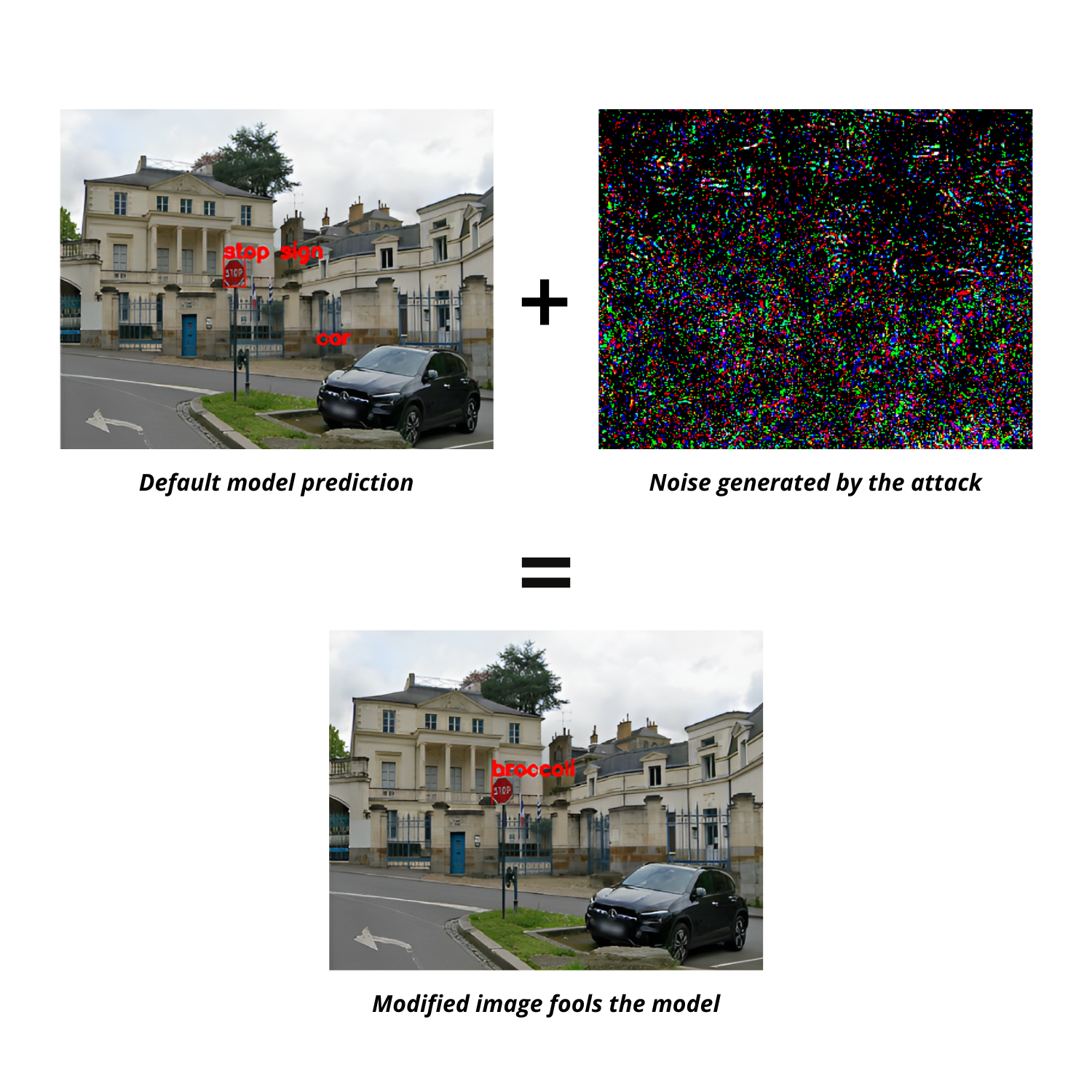Why Robustness Matters
Even the best AI models can be fooled. Adversarial examples are malicious inputs created to deceived your AI that can lead your system to make critical mistakes.
What Is an Adversarial Example?
Adversarial examples are inputs designed to fool AI models. They can work on any kind of data, such as images, text or audio. They include perturbations that push the model to make incorrect predictions.
For example, an image of a stop sign might be modified so that an AI sees a speed limit sign instead. In natural language processing, a small word tweak might cause a sentiment classifier to flip from “positive” to “negative.” These attacks exploit the fact that many AI models learn patterns that are statistically useful but semantically fragile.

